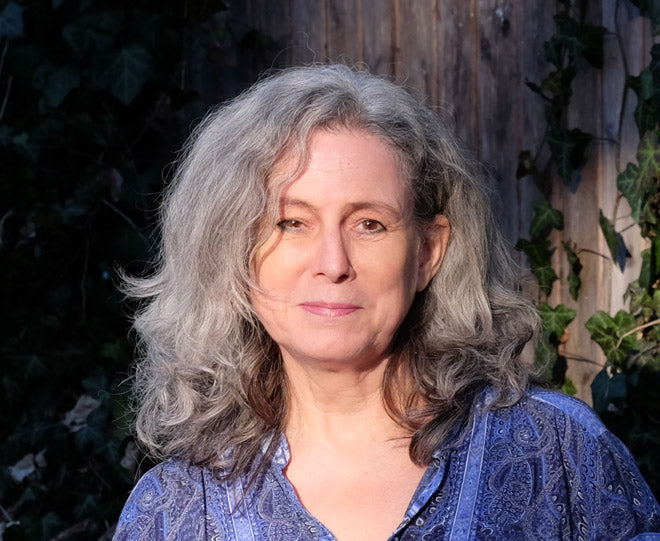
“Naturopathy can be a valuable partner of conventional medicine!”
“Naturopathy can be a valuable partner of conventional medicine!”
Interview with Sabine Ritter , pharmacist and alternative practitioner, and Elisabeth Schittler-Krikonas , nutritionist and TCM expert
"Many people are forced to take medication for a certain period of time or even long-term, and they often complain about side effects. But there are a whole range of natural options available to them - such as medicinal herbs, dietary recommendations or relaxation and yoga exercises - to treat the unwanted effects. And this self-help is usually really fun!"
Sabine Ritter and Elisabeth Schittler-Krikonas, the authors of the guide “Treating side effects naturally”, provide comprehensive self-help measures that alleviate the most common side effects and can be individually put together according to a practical building block principle.
“ For risks and side effects, ask your doctor or pharmacist” is a recommendation that has become a well-known phrase in drug marketing. Why do most drugs have side effects?
Sabine Ritter: Some of the unwanted effects of medications are closely linked to their mode of action. Many medications exert their effect via receptors on the surface of human cells. However, the respective docking sites of the drugs are usually located in different places in the body. The medications therefore not only act on a diseased organ, but also on other parts of the body. Susceptible people may then suffer unwanted effects. However, placebos, i.e. medications without active ingredients, can also have both an effect and a wide variety of side effects. For example, if you expect to suffer side effects, you can increase your risk of them occurring. Regardless of the mechanism of action of medications, some things are also a matter of the mind.
Your guide offers self-help for mild side effects, but warns against self-treatment of serious complaints when taking medication. Which side effects can be alleviated naturally and which cannot?
Sabine Ritter: It's difficult to generalize. It often depends on the individual case. For example, studies have shown impressive success in adjunct therapy for cancer patients using acupuncture or Chinese herbs. Among other things, some side effects were successfully alleviated. But in life-threatening situations, things sometimes have to happen very quickly, and conventional medicine is much more effective than naturopathy.
Every package insert contains a downright frightening list of side effects that range from very rare to very common. How is it that side effects of medication do not affect everyone who takes it?
Elisabeth Schittler-Krikonas: Some medications do have long leaflets with numerous side effects, but there are also well-tolerated drugs with manageable lists. Everyone has their own individual weaknesses. This is evident in all situations in life, including when taking medication. That is why some patients tolerate medication well, while others suffer from very different side effects.
In particular, elderly patients or those suffering from chronic illnesses take numerous and different medications over long periods of time. What should those affected pay particular attention to?
Sabine Ritter: Above all, those affected must inform every doctor they visit about all the medication and natural remedies they are taking. This is the only way that doctors can ensure that the risk of dangerous interactions between the individual active ingredients remains low. Pharmacists also have the option of checking the medication plans of all patients, including those with chronic illnesses, for interactions. They can then suggest an alternative to the treating doctor if necessary. Seniors can also turn to geriatric facilities that specialize in improving the drug treatment of this age group.
In your recommendations, you combine herbal know-how and nutritional tips with various exercises to improve well-being. How do those affected know which measures are useful for alleviating the respective symptoms?
Elisabeth Schittler-Krikonas: Any measure that is fun is useful for alleviating symptoms. That is why we have tried to make a variety of different suggestions. Most patients simply lack the knowledge that the things they like to do or eat also have a medical benefit. In addition, however, they also need to have a bit of patience and trust, because not all measures switch the switch to well-being overnight. But as we all know, faith can move mountains! If you are convinced of "your" method, there is a good chance that it will work! It is particularly effective to combine several elements, which is why we have structured the book as a modular system from which everyone can choose what suits them.
You advocate using alternative medical procedures to support conventional medical therapy in order to improve the quality of life of patients. Are there situations where this cooperation can be harmful?
Elisabeth Schittler-Krikonas: Of course, there can be situations in which this cooperation does not make sense. In an emergency situation, for example, there is no time for it. In everyday life, it is important that the treating doctor is involved when conventional medicine and naturopathy are used together for the benefit of the patient. This is because some medicinal substances must not be taken together with certain herbs. This applies, for example, to St. John's wort, which can weaken the effect of some medications. The contraceptive pill is a well-known example of this.
The interaction between medication and food is not yet fully understood. Which medicines can change the absorption or excretion of nutrients, and which foods can, conversely, impair the effect of medication?
Sabine Ritter: The list of medications that alter the absorption or excretion of nutrients is long. There are excellent reference works on this that doctors and pharmacists can use to quickly find out information. However, you should also have a blood test to check whether there is actually a deficiency or excess of these nutrients. The interactions between food and medication have not yet been fully investigated. However, it is known that some medications should not be taken with coffee, tea, cola or dairy products, for example, because they are otherwise less effective. However, many people do not know that grapefruit can weaken the effectiveness of some medications. Alcohol can also alter the availability of active ingredients. Furthermore, foods rich in fibre - including linseed or the currently very popular chia - should not be on the menu immediately next to medications.
Book tip:
Pharmacist Sabine Ritter / Elisabeth Schittler-Krikonas: Treating side effects naturally. Tried and tested medicinal herbs, exercises and nutritional recommendations – how to alleviate unwanted side effects of medication. Mankau Verlag, 1st edition July 2017, paperback, 16 x 22 cm, full color, 287 pages, 20 euros (D) │ 20.60 euros (A), ISBN 978-3-86374-403-8.
Link recommendations:
More information about the guide "Treating side effects naturally"
More about Sabine Ritter
More about Elisabeth Schittler-Krikonas










